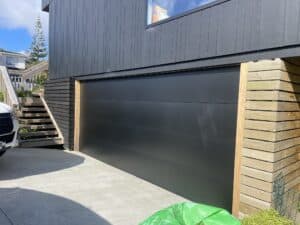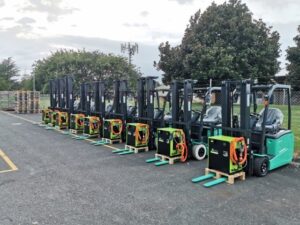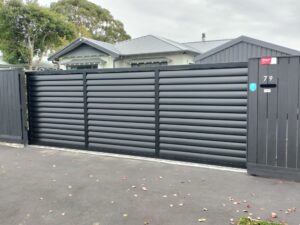When it’s time to replace your roof, choosing the right contractor is one of the most critical decisions you’ll make. A proper reroof can protect your home from Kerikeri’s salt-laden air, handle the Bay of Islands’ shifting weather, and last for decades. A bad one? It can lead to water damage, loose fixings, and ongoing maintenance costs.
This article will help you make a confident choice by breaking down what makes a contractor reliable and what you should expect during the selection process. Whether you live in town or on a rural property near the coast, these guidelines will serve you well. Mistakes in reroofing cost time and money, and with local roofing demand rising, it’s easy to fall for a slick sales pitch that doesn’t match up in practice.
Key Takeaways
- A reliable contractor will have strong local experience, proven references, and roofing-specific credentials
- Transparent quoting, detailed contracts, and current insurance are non-negotiable signs of a reputable roofer
- Local knowledge matters when reroofing in coastal areas like Kerikeri and the Bay of Islands
- Roofing specialists provide reroofing services built for NZ’s coastal climate
- Choosing the right roofer involves reviewing real project outcomes and asking the right site visit questions
What Makes a Reroofing Contractor Reliable?
Experience That Matches the Job
Roofing isn’t a one-size-fits-all trade. You want someone who’s done similar projects, especially in exposed coastal zones. Experience with both tile and metal roofing systems helps. Reputable contractors can show you completed work on similar homes and clearly explain why they recommend certain materials or methods.
They won’t push the same fix for every job. They’ll inspect your site, take accurate measurements, and tailor their suggestions to your property and your budget.
Local Reputation and Verifiable References
Good contractors get talked about. Ask your neighbours who they used. Look up reviews from customers in Kerikeri and surrounding areas. A contractor with strong local roots won’t vanish when the job is done. Be wary of operators who’ve recently changed names or don’t appear on trusted local directories.
Real credibility comes from photos of completed work, referrals you can call, and consistency in how they do business. A reliable roofer will be transparent about their work history and open about feedback, even if it wasn’t perfect.
Certifications, Licensing, and Insurance Are Must-Haves
Why Proper Licensing Protects You
A reroofing project must meet the NZ Building Code. Hiring someone with LBP (Licensed Building Practitioner) status gives you confidence they know what’s required. Roofing work isn’t just about laying sheets. It’s about getting the structure, fixings, and flashing right.
Roofing systems involve moisture barriers, framing checks, and correct fall. These are all areas where mistakes aren’t visible until it’s too late. LBP credentials give you a minimum benchmark to work from.
The Insurance Question You Can’t Skip
Always ask about public liability and workmanship insurance. If something goes wrong, like a storm hits mid-install or a ladder damages your property, you want to know who’s covering what. Professionals will have no issue providing certificates and explaining their cover.
Make sure both types of insurance are current, not just listed. Ask for confirmation in writing, and don’t sign any contract until you’re sure everything is covered.
Quotes That Tell You More Than Just Price
What a Transparent Quote Should Include
A decent quote will spell out materials, labour, disposal, scaffolding, and timelines. It should mention warranties and whether pricing may shift due to weather or material delays. Clarity here protects you later. The more detailed the quote, the more trust you can place in the contractor. Good quotes should also outline who to contact during the job and what happens if issues arise.
How to Spot a Red-Flag Quote
Be cautious of overly cheap quotes. If it’s vague or verbal-only, it’s not worth considering. Quality roofing has real costs. Cutting corners usually shows up within the first year. Be alert for quotes that avoid detail or use unclear language like “allowances” or “approximate rates.” These often signal the contractor is trying to keep options open in ways that may cost you later.
Ask the Right Questions Before Signing Anything
What to Ask During the Initial Visit
Find out who will be doing the actual work. Is it the company’s crew or subcontractors? What’s the expected duration, and how do they handle weather disruptions? These details matter, especially in regions where roofing timelines are often weather-dependent. Ask if the site will be inspected beforehand, and whether safety measures will be in place to protect your property during the job.
Get It in Writing
Every agreement should be on paper. A reliable contractor provides a contract that outlines scope, timeline, costs, and terms. If they resist, walk away. The contract should include change clauses, material specifications, and warranties on both labour and products. Don’t rely on handshakes or email threads. A proper written contract gives you legal protection and sets clear expectations.
Why Local Knowledge Matters in Coastal Reroofing
Understanding Salt, Wind, and Building Zones
Coastal roofs face wind-driven rain, salt corrosion, and UV extremes. Contractors familiar with these conditions will recommend the right fasteners, underlayments, and materials. This kind of knowledge directly affects how long your roof lasts. In places like Kerikeri, roofing fixings can corrode faster than inland areas. Choosing materials like Colorsteel with coastal ratings can make a real difference.
Familiarity with Local Regulations
Experienced contractors know how to work with the Far North District Council. They handle permits efficiently, avoid delays, and make sure the reroof meets all compliance standards. That kind of competence can save you weeks. They’ll also know about local wind zones, climate maps, and requirements for roof pitch and drainage. These aren’t minor details. They’re the kind of checks that keep your roof from leaking or failing inspection.
Final Checklist: What a Reliable Roofer Looks Like
- Has strong regional experience with similar homes and roof types
- Carries LBP licensing and relevant insurance
- Provides detailed written quotes and contracts
- Offers clear communication from day one
- Can point to recent reroofing jobs nearby
- Understands local weather conditions and compliance rules
- Uses long-lasting, coastal-grade materials backed by warranties
Ready for a Roof That Lasts?
Roofing is one of the most important investments you’ll make as a homeowner. If your roof is ageing, leaking, or no longer up to code, it’s time to look into a proper replacement.
Reliable contractors will walk you through the process, give honest advice, and stand by their work. They won’t rush decisions or ignore your questions. They’ll earn your trust by showing up on time, doing what they say, and cleaning up when they’re done.
Once your new roof is installed, keeping it free from moss and lichen is just as important, especially in damp or coastal zones. Here’s how to choose the right roof moss treatment service for long-term protection.
Professional roofing teams offer reroofing services specifically built for New Zealand’s coastal homes. They understand the unique challenges of Northland’s climate and deliver results that stand up to both time and weather. Their work reflects a commitment to getting things right the first time and making sure your new roof performs year after year. If you want a result that lasts, work with a team who knows exactly what that takes.
Have you read these articles?
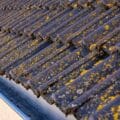 How to Choose the Right Roof Moss Treatment Service in Hamilton and the Waikato
How to Choose the Right Roof Moss Treatment Service in Hamilton and the Waikato
 Spotlight on Orthodontic Care: Aligning Jaws and Boosting Health in Kerikeri
Spotlight on Orthodontic Care: Aligning Jaws and Boosting Health in Kerikeri
 How To Choose The Right Drainage Contractor In Auckland
How To Choose The Right Drainage Contractor In Auckland
 How To Choose The Right Pool Fencing Contractor In Christchurch
How To Choose The Right Pool Fencing Contractor In Christchurch
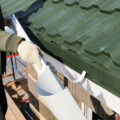 How To Choose The Best Spouting Style For Your Hamilton Home
How To Choose The Best Spouting Style For Your Hamilton Home

